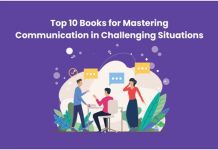The face of 21st-century India has altered dramatically as a result of globalization; knowing English has become a pressing need, as it will aid children throughout their school and college years, as well as their professional lives. Learning English will help your child become more culturally aware, on par with their peers, and able to carve out a niche in today’s competitive market.


Introduction
Most parents recognize the value of learning English, but many don’t consider it a top priority or believe that learning another language early may harm their child. It’s the polar opposite. According to much research, the optimal time to start teaching your child a second language is before they reach the age of ten. Language is taught and acquired faster, maintained better, and spoken with remarkable pronunciation at this age.
Benefits of learning English early
Learning is enjoyable for young children: They are unconcerned about whether an activity will develop their cognitive or physical skills. They want to jump in and have a good time. Children learning a new language should take the same method.
Inspired: One of the best things about young children is that they are willing to attempt new things without worrying about whether or not they are correct. This is also true of language learning. Young children are often eager to practice what they’ve learned without fear of making mistakes.
Unremarkable: Introducing children to languages at an early age helps them embrace that bilingualism and multilingualism are commonplace in contemporary society. Children exposed to various languages and cultures at a young age through books, videos, music, and objects will feel more at ease as they grow up in a world where languages and cultures collide regularly.
Ways for Teaching Kids English
Movies and Cartoons
This is a tried-and-true method. When it comes to learning a second language, having fun is always a major plus. It’s always more fun than taking an English lesson. English children’s television shows can be used in the same way.
English Books
For extremely young children, books are ideal. They can learn about colors, animals, countries, and other topics. Kids take on a whole new shape once they start reading them themselves. Their reading and English skills will improve.
Rhymes and Songs
When youngsters learn English via singing and dancing, they have more fun and learn faster. You could do the same thing at home.
What do you need to pay attention to?
If the following conditions exist, teaching English to youngsters should not begin:
- Your child is still unwilling to acknowledge the world around him.
- Your child is self-conscious in his native tongue (you notice such problems as limited vocabulary, pronunciation defects, difficulties with logical connections).
- You have not prepared yourself psychologically (it is necessary to start learning English with the child, and it is better to know the language at the primary level already).
Conclusion
Each child is distinct. They develop in distinct ways. It is critical to demonstrate objectivity and your desire to raise a bilingual child in this situation. Concentrate on your child rather than comparing him or her to the daughters or sons of your acquaintances. Enroll soon for the spoken english classes for kids.
















